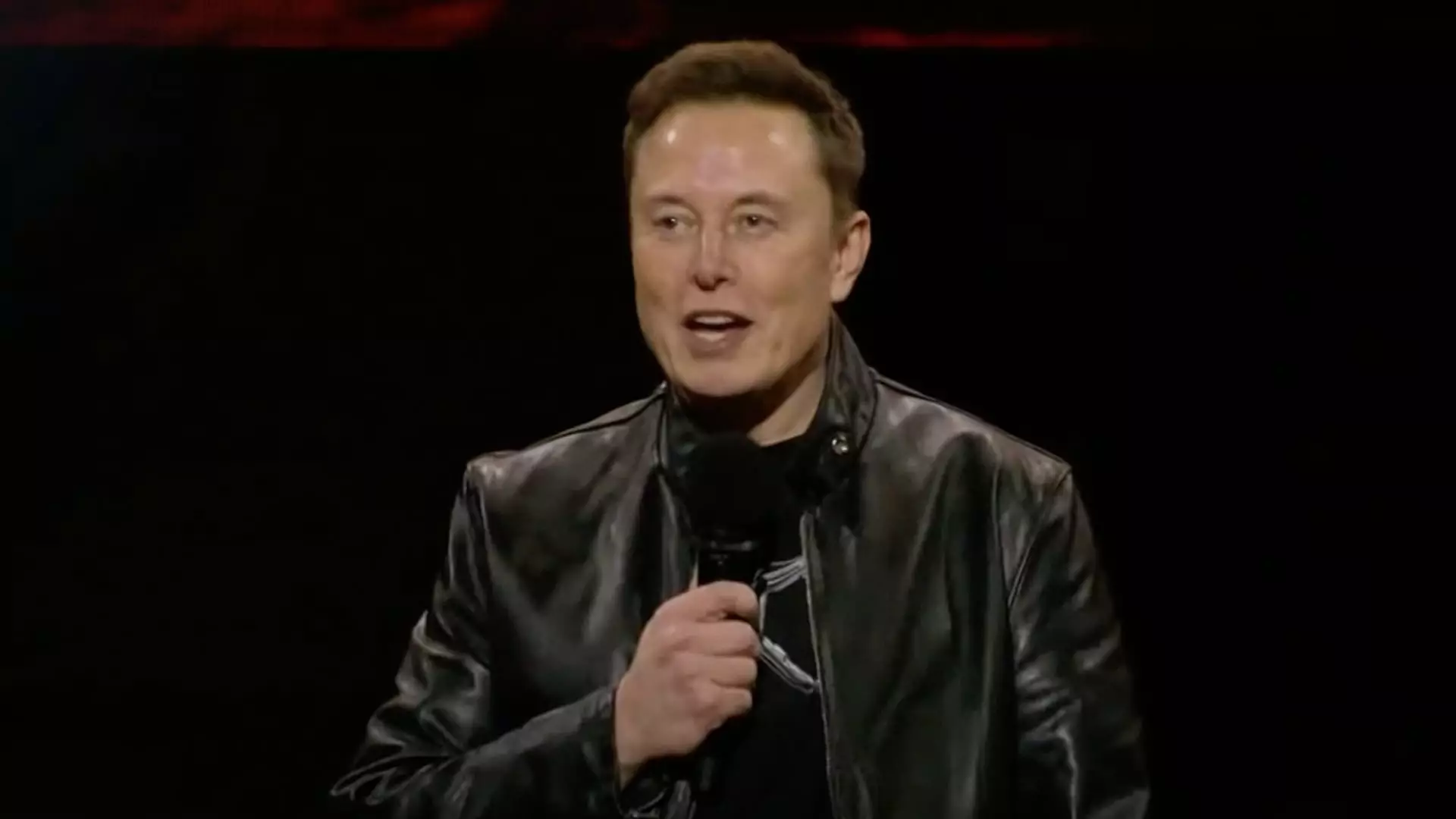In an era where technological advancement and corporate ambitions often intersect with intellectual property rights, a recent lawsuit has thrust Elon Musk, Tesla, and Warner Brothers Discovery into the spotlight. This case revolves around allegations of copyright infringement linked to the iconic imagery of the science-fiction classic “Blade Runner 2049,” raising significant questions about the ethics and legality of using artificial intelligence (AI) in creative marketing strategies. This article delves into the implications of the lawsuit, its impact on both the companies involved and the broader industry, while reflecting on Musk’s controversial public persona.
The Allegations: A Disputed Image
The lawsuit, filed by Alcon Entertainment—one of the producers behind “Blade Runner 2049″—claims that Musk and his collaborators sought permission to utilize a prominent still image from the film to promote Tesla’s ambitious robotaxi plan. This request was notably denied, as Alcon vehemently objected to any implication of affiliation between its intellectual property and Musk or Tesla. Despite this refusal, the defendants allegedly resorted to using an AI-generated image, which purportedly mimicked the aesthetic of “Blade Runner 2049,” during a promotional event for their Cybercab initiative, designed to revolutionize urban transport by offering a dedicated robotaxi service by 2027.
This situation brings forth critical questions about the boundaries of creativity when artificial intelligence is involved. The lawsuit characterizes the defendants’ actions as a “massive economic theft,” suggesting that reliance on AI-generated content without proper authorization breaches copyright law. While AI has empowered numerous industries to innovate and experiment creatively, it has also muddied the waters concerning ownership and usage rights.
Interwoven within the legal proceedings is the portrayal of Musk as a “problematic figure.” The lawsuit contends that any partnership with Tesla could be detrimental to brands like Alcon, which wish to uphold certain values that may remain incongruent with Musk’s highly scrutinized political and social commentary. This aspect of the case raises alarms regarding brand reputations and the implications of associating with a figure as polarizing as Musk, particularly amid his vocal support for former President Donald Trump and his tendency to disseminate contentious narratives on social media.
Alcon’s concerns aren’t merely speculative; the company is reportedly engaged in negotiations with other automotive brands for potential collaborations, particularly in context of its upcoming “Blade Runner 2099” television series. This indicates the ripple effects of Musk’s actions might extend beyond a single lawsuit, potentially inhibiting broader creative partnerships and innovations within the industries involved.
The intersection of artificial intelligence and copyright laws poses increasingly complex challenges for creators and companies alike. As technologies become more integrated into the marketing and creative processes, the potential for misuse escalates, leading to disputes like the current lawsuit.
In this case, Tesla’s reliance on AI to generate publicity risks overshadowing the ethical standards that govern creative works. If a company can freely use AI to replicate iconic imagery without permission, it sets a troubling precedent that could undermine the integrity of artistic expression and intellectual property rights.
As Musk and his enterprises navigate the legal morass of copyright infringement, the implications of this case resonate throughout the tech and entertainment landscapes. The clash between innovation and respect for intellectual property underscores the urgent need for clearer guidelines governing AI use in creative fields. While Musk’s ambitious vision for autonomous vehicles continues to attract attention, it is essential for companies to find a balance that fosters creativity while respecting existing legal frameworks.
Ultimately, the outcome of this lawsuit will not only shape the future of Tesla and its robotaxi ambitions but may also influence the evolving relationship between AI technologies and the creative industries at large. In an age where the lines between innovation and ethics are increasingly blurred, the ongoing discourse surrounding this case serves as a critical reminder of the importance of adhering to both legal obligations and moral responsibilities in business practices.


Leave a Reply